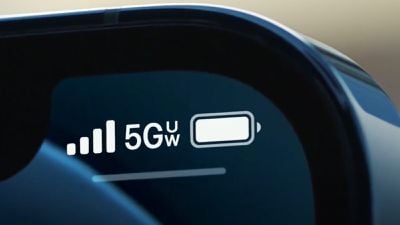Telecom giant Ericsson has filed another set of patent infringement lawsuits against Apple in a long-running dispute between the two companies over royalty payments for the use of 5G wireless patents in iPhones.

In 2021, both companies sued each other in the US after negotiations failed over the renewal of a seven-year licensing contract for telecom patents covering 2G, 3G, and 4G technologies that was established in 2015.
Despite long negotiations, the two companies have been unable to reach a new patent-licensing agreement that also covers 5G, and in October, Ericsson sued Apple claiming that the company was unfairly trying to reduce royalty rates. Two months later, Apple countersued Ericsson, accusing the Swedish company of using "strong-arm tactics" in its bid to renew patents.
"Since the prior agreement has expired, and we have been unable to reach agreement on the terms and scope of a new license, Apple is now using our technology without a license," an Ericsson spokesman told Reuters.
Ericsson might be a relative minnow in the smartphone business, but its portfolio of telecommunications patents is vast. The company holds over 57,000 patents, royalties from which account for around a third of its operating profit. As for its 5G patent, the company usually collects $2.50 to $5 in royalties per phone.
According to a recent Ericsson filing, that's the rate it still wants to collect: "Ericsson is willing to continue to offer Apple our publicly announced 5G multimode rate of $5 per phone (with a $1 early signing discount) a rate which we will continue to honor assuming we execute a license relatively quickly."
However, following its acquisition of Intel's smartphone modem business, Apple believes it now holds a share of declared 5G patent families that is comparable to Ericsson's share. As such, Apple thinks its net payments to Ericsson should decrease compared to the 2015 license.
Shortly after it acquired Intel's patents, Apple published a statement on its website covering the fair, reasonable and non-discriminatory (FRAND) licensing of standard essential patents (SEPs). In the statement, Apple cautioned against any companies that "use the power conferred by standardization to eliminate competition through selective patent licensing or discriminatory and excessive royalties."
Despite its position, Florian Mueller, an intellectual property expert who runs the Foss Patents website, believes Apple is fighting a losing battle and that Ericsson has the advantage, thanks to recent terms it agreed with Samsung for the use of its 5G patents.
"The overall circumstances suggest to me that Ericsson is going to win this, and the only leverage Apple has is 'hold-out.'" says Muller. "I believe the Ericsson-Samsung license deal involves a somewhat lower royalty rate on those Samsung phones that cost a fraction of an iPhone, but that whenever the terms of the Ericsson-Samsung license come into play (comparable licenses, non-discrimination), Ericsson can argue that even Samsung accepted to pay a royalty rate that is consistent with demanding $5 per iPhone from Apple."























